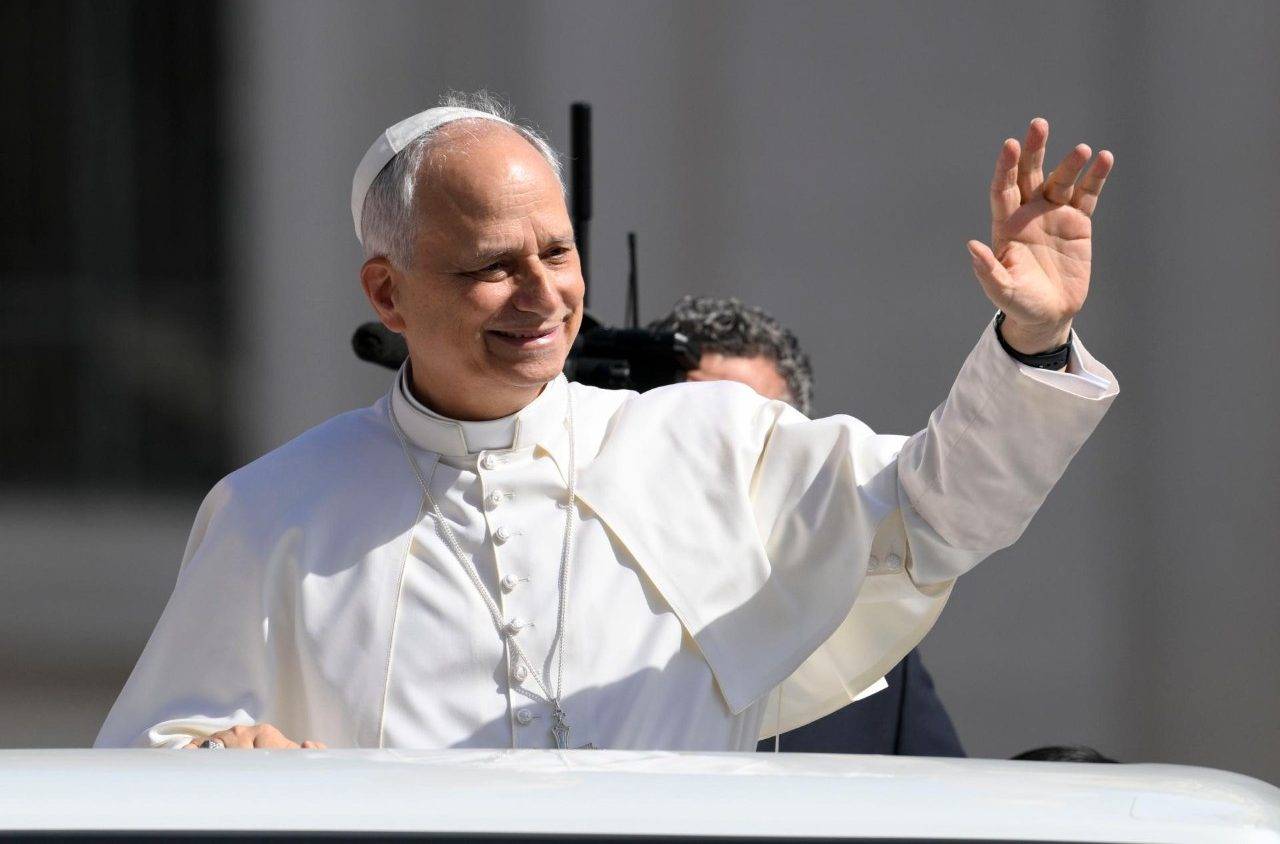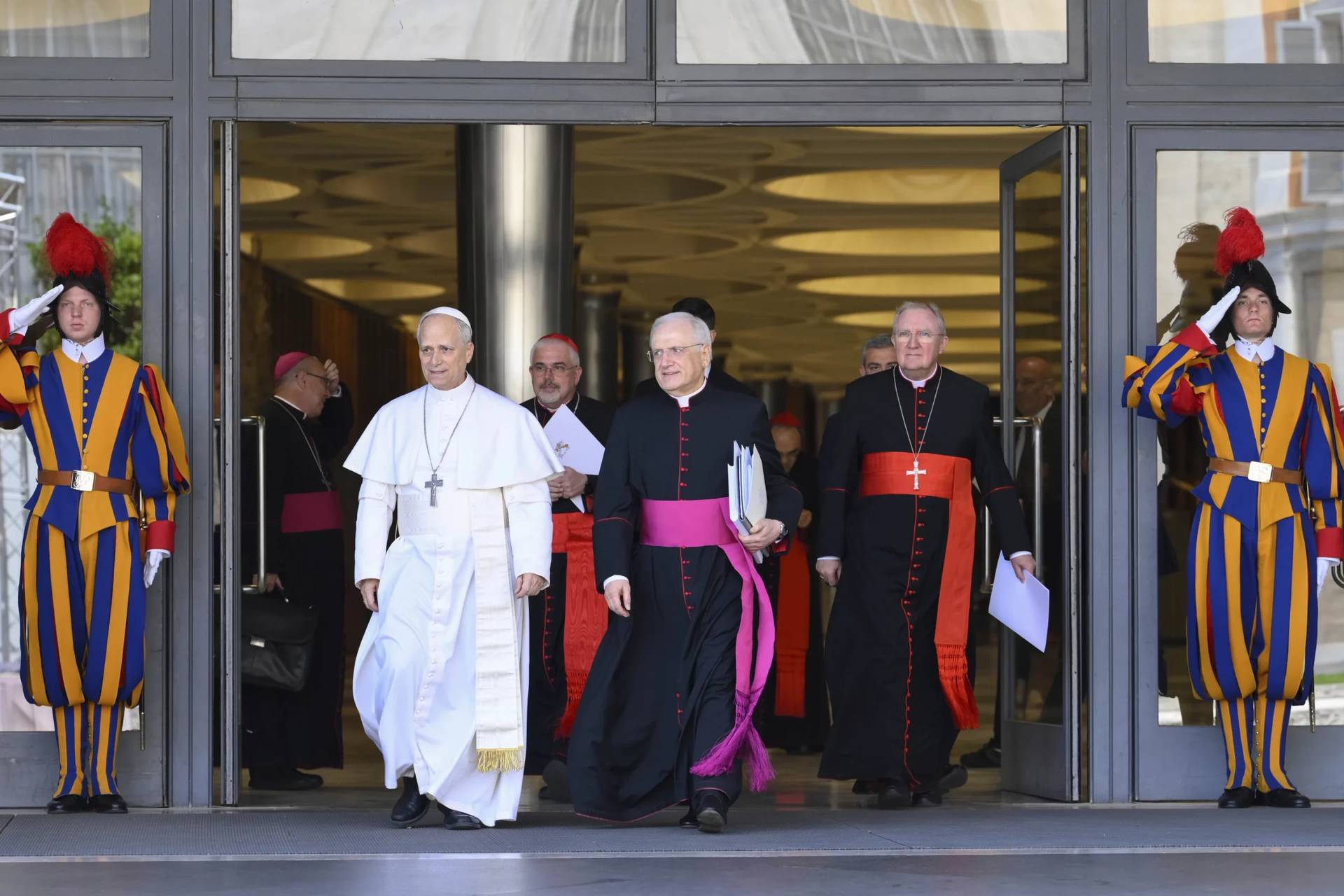ROME – Pope Francis is now over 80 and not long ago marked his fourth anniversary in office, and although he’s showing absolutely no signs of slowing down, it’s natural that people have begun to talk about what his long-term legacy is going to be.
By now it’s clear Francis’s vision for the Church is complicated, but two core elements are a desire to foster social activism, especially direct and concrete forms of service, and to put the poor in a position to be heard in discussions about how to solve their problems. The question is, how will Francis ensure that those priorities remain in the mix even after he’s gone?
One piece of the answer fell into place on Friday, as the pontiff formally opened a Vatican office for Scholas Occurentes, an Argentine group designed to bring wealthy and impoverished schools together in a spirit of partnership that he backed in Buenos Aires when he was the city’s archbishop, and he’s essentially brought with him to Rome and made it into a global brand.
Scholas Occurentes is a Latin phrase meaning “schools encounter,” and it’s obviously part of Francis’s vision of building a “culture of encounter.” The first schools to join its global network signed on in 2013 at a Vatican event featuring soccer stars Lionel Messi and Gianluigi Buffon, part of the group’s emphasis on sports and the arts as ways of bringing young people together.
Since being elected to the papacy, Francis has erected the group as a private canonical foundation, issuing a chirograph granting it that status in August 2015 and approving the group’s statutes. The pope’s backing has also helped the group attract substantial private-sector support, including such corporate titans as Google and IBM.
Currently, Scholas has offices in both Buenos Aires and in the Vatican, and plans call for the opening of a third soon in Mozambique.
On Friday, the pope further cemented the group’s place by travelling to the Piazza San Calisto in Rome’s Trastevere neighborhood, where several Vatican departments have their offices, to dedicate a new permanent headquarters for Scholas Occurentes.
A year ago, it seemed briefly that Francis’s ardor for the group might have cooled. Italian media outlets published a lengthy letter the pontiff had written the founders, insisting that they reject a $1.2 million donation from the Argentine government on the grounds that seeking that kind of funding might lead them down a “slippery slope” of corruption. In the end, Scholas didn’t take the money.
However, the fact that the pontiff turned out for the office-opening on Friday would seem to suggest the group is still in his good graces, albeit perhaps with its sails trimmed a bit.
To be honest, it’s been a little difficult for many Vatican-watchers to ascertain exactly what Scholas Occurentes does, aside from organizing the occasional friendly soccer match at Rome’s Olympic Stadium, putting together a few Google Hangout sessions with Pope Francis with groups of schoolkids, and helping a handful of high-profile celebrities such as Richard Gere and Selma Hayek get some face time with the pope.
Francis did another one of those Google Hangouts on Friday, speaking with students and adults from Italy, Spain, the United States, Mexico, Colombia, Brazil, Paraguay, Haiti, and Argentina, calling them to be agents of a “human” form of globalization.
In any event, Pope Francis’s numerous shows of support for Scholas now mean that a department dedicated to building a global network of schools to promote solidarity and the common good has become a permanent fixture of the Vatican’s landscape, something that will almost certainly survive Francis and continue under whoever comes next.
To use some classic ecclesiastical-speak, what’s happening is that we’re watching Francis institutionalize his own charism.
In that sense, Scholas Occurentes is similar to the World Meeting of Popular Movements, another initiative of this pope that’s become basically permanent. Designed to put ecclesiastical and political leaders into conversation with voices from the base, it brings together labor unions, environmental groups, associations for the homeless and landless, and other grassroots movements.
The third such summit was held last November in the Vatican, and Francis also staged one in 2015 in La Paz, Bolivia, while he was visiting the country. Last February, there was a regional version of the event in Modesto, California, the first time it had taken place in the United States. Cardinal Peter Turkson of Ghana, head of the Vatican’s Dicastery for Promoting Integral Human Development, was on hand as the pope’s envoy.
Francis is deeply committed to the initiative. In the old days, it used to be that a pope’s most important diplomatic and political speech of the year came in his January audience with the diplomatic corps accredited to the Vatican. By now, however, it’s abundantly clear that in those settings he’s mostly drawing on talking points developed by the Secretariat of State, while his real passion and personal priorities surface in the speeches he gives to the popular movements.
Three years into it, there’s an infrastructure and basic game plan developed around these meetings, and every reason to believe that like other such Vatican-sponsored events — the World Meeting of Families, for instance – they’ll continue happening long after Francis has left the stage.
The World Meeting of Popular Movements too, of course, is a classic expression of the idea of a “culture of encounter.”
Just as World Youth Day is a signature part of St. John Paul II’s legacy, and the Pontifical Council for Promoting New Evangelization is the same for emeritus Pope Benedict XVI, Friday put an exclamation point on Scholas Occurentes as a defining element of what Pope Francis will leave behind.
What future popes may do with these new institutions is, of course, anyone’s guess. What’s clear, however, is that they’ll have to do something, because they’re here to stay.















